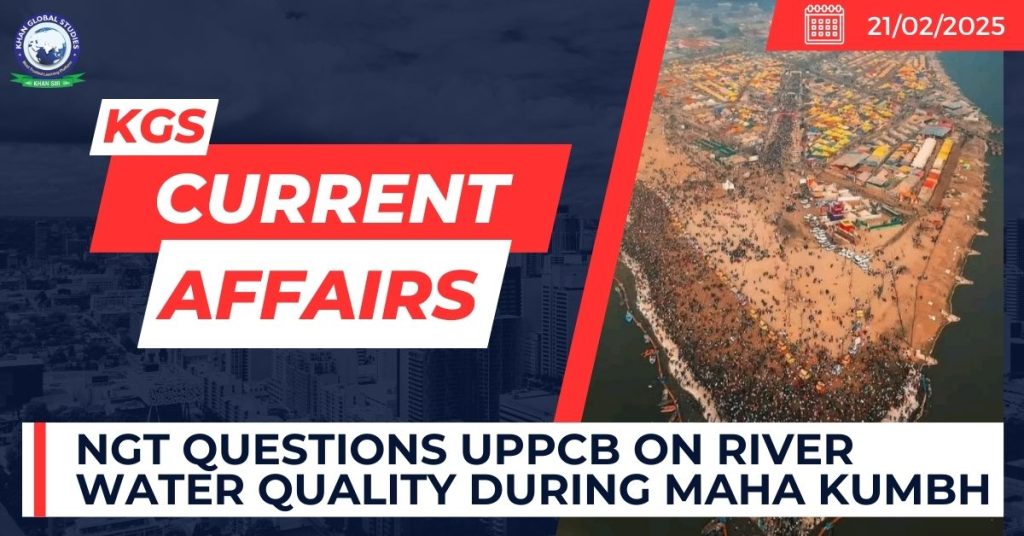Context:
The National Green Tribunal (NGT) sharply criticized the Uttar Pradesh Pollution Control Board (UPPCB) for failing to submit adequate information regarding the water quality in the Ganga and Yamuna rivers during the ongoing Maha Kumbh in Prayagraj.
More on the news:
- NGT’s focus was particularly on the reports of the presence of faecal coliform levels linked to human and animal waste in the Prayagraj’s Sangam sites.
- Kumbh Mela has been going on since 13 January and will continue till 26 Feb 2025.
NGT’s Concerns:
- The NGT’s concerns were based on a report submitted by the Central Pollution Control Board (CPCB) earlier in February, highlighting high levels of faecal coliform a sign of sewage contamination at the confluence of the two rivers at Prayagraj’s Sangam. (The level of faecal coliform was reported to be 2,400 mpn/100 ml).
- The presence of these bacteria indicates that the water is contaminated with sewage, leading to the potential spread of waterborne diseases such as typhoid, diarrhoea, and cholera.
- Faecal coliform bacteria are microbes that typically live in the intestines of warm-blooded animals, including humans, and are found in their excreta.
- The report stated that, the biochemical oxygen demand (BOD) levels in the river water was 8.9 milligrams per litre higher than the normal standard of 3 milligrams (mg) per litre.
- A high BOD indicates a high level of pollution, as microorganisms require more oxygen to decompose the organic waste in the water.
- River water is said to be suitable for bathing if the biochemical oxygen demand is less than 3 milligrams per litre and faecal coliform is below 2,500 mpn/100 ml.
- The NGT demanded a more comprehensive and timely report on the water quality during the ongoing Kumbh.
Questionable Gaps in UPPCB’s Report:
The UPPCB in its report to the NGT mentioned that water samples were collected up to January 12, 2025, well before the commencement of the Maha Kumbh.
- This delay in sampling was questioned by the NGT bench, which pointed out that the report did not address the critical post-Kumbh water quality, particularly during the high influx of pilgrims.
Further criticism arose from the 250-page report filed by the UPPCB, which, according to the NGT, lacked essential data on faecal coliform levels, which are key to determining water safety.
The Additional Advocate General of UP informed NGT that while the state government was not challenging the findings of the CPCB report, it sought clarity on the sampling points used by the central pollution body.

